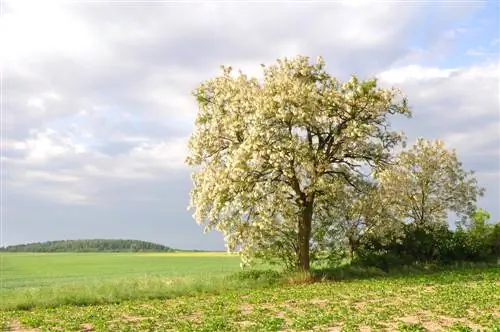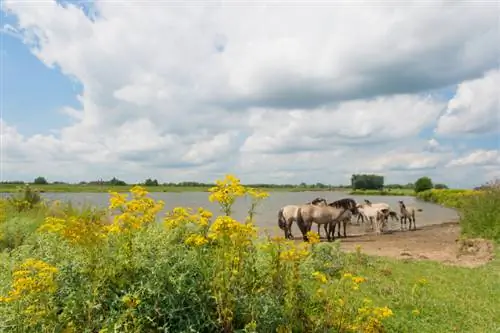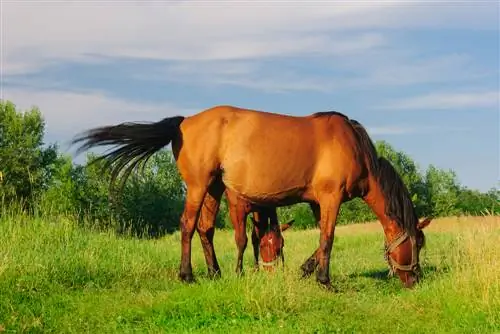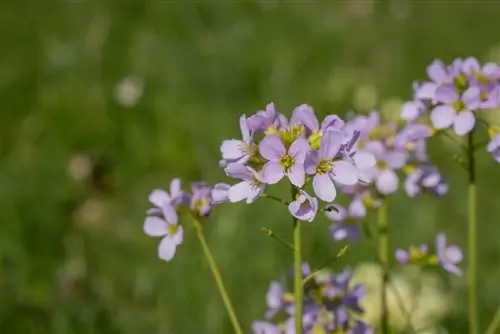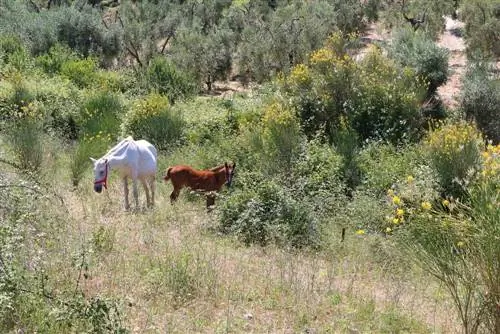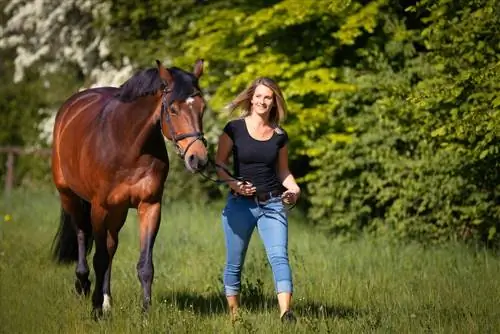- Author admin [email protected].
- Public 2023-12-16 16:46.
- Last modified 2025-01-23 11:22.
In contrast to the real acacia from Australia, the mock acacia that grows here is a poisonous plant. Here you can find out how poisonous the black locust tree is for horses and which parts are dangerous.
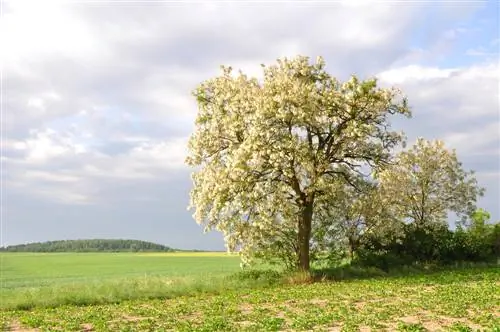
How poisonous is the acacia tree for horses?
The black locust (mock acacia) is highly toxic to horses because it contains toxins such as robin, phasin and toxic glycosides in the bark, seeds and leaves. Poisoning is manifested by increased pulse, tremors, salivation and possibly cramps.
How poisonous is black locust for horses?
The black locust isstrongly poisonous for horses and contains harmful substances in almost all parts of the plant. The acacias that grow freely here are not real acacias, but robinias. These are also known as false acacia. The bark, seeds and leaves of black locust can lead to fatal poisoning symptoms in horses. They contain the following toxins:
- Robin
- Phasin
- poisonous glycosides
How poisonous is acacia wood for horses?
The bark of the mock acacia has ahigh concentration of poison. Unfortunately, the poisonous plant also gives off a sweet smell. Things look different with seasoned acacia wood. However, free-growing wood with bark and sap in the wood is toxic to horses. Accordingly, it is best to give your animal a wide berth around the acacia tree.
How does acacia poisoning manifest in horses?
Typical signs of acacia poisoning include signs such as increased pulse,tremblingand excessivesalivation In addition to these behaviors, balance disorders can also be noticeable Excitement of the animal, a convulsion or a dilated pupil can be signs of poisoning by the acacia tree.
Tip
If in doubt, call the vet
Are you unsure whether your horse has eaten a poisonous acacia tree? If you are unsure or see signs of poisoning, you should call a veterinarian if in doubt. In any case, the acacia is not something to be trifled with. Also, do not plant acacias in a horse pasture, on a pasture fence or near the animals' stables.

